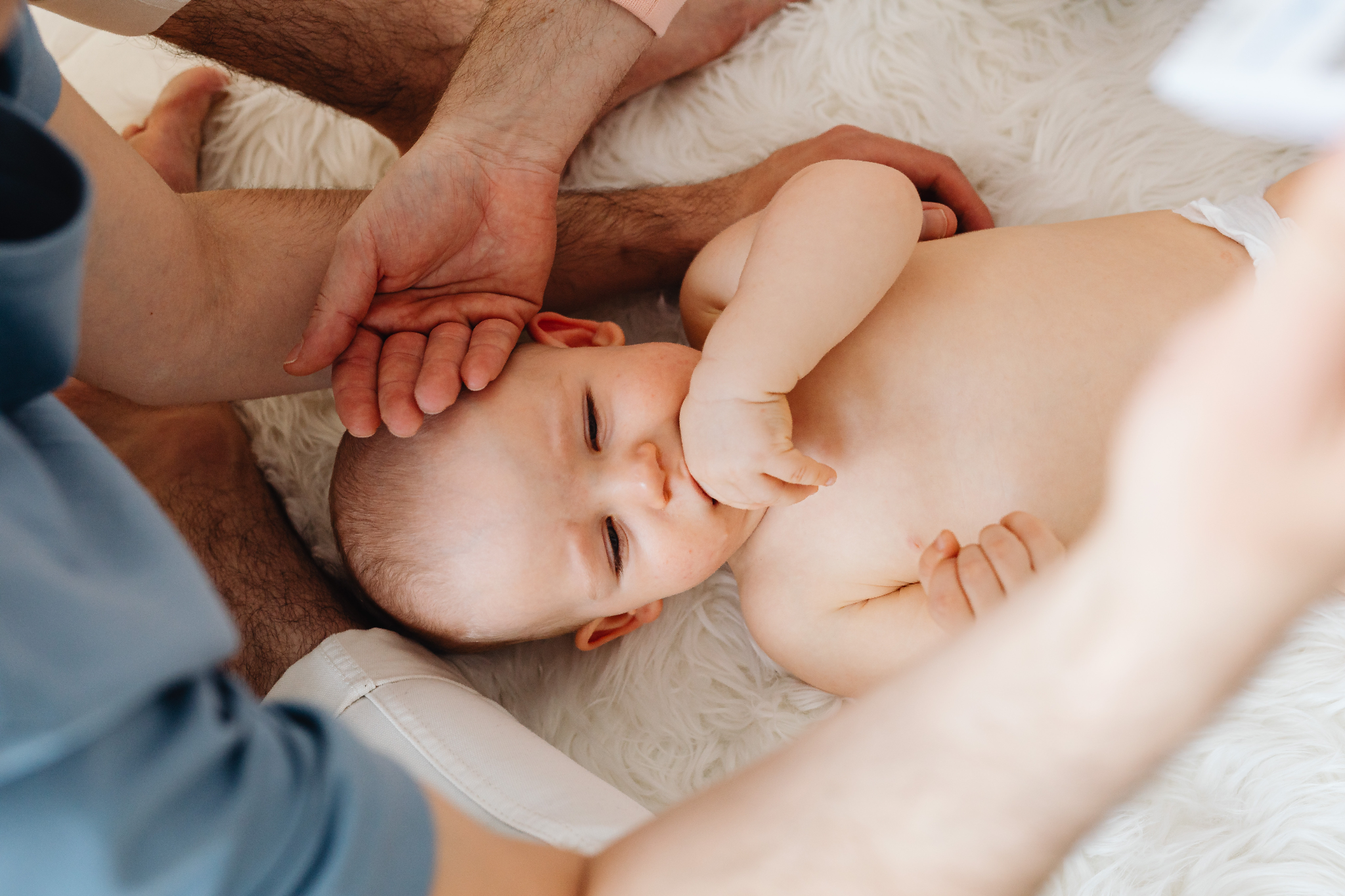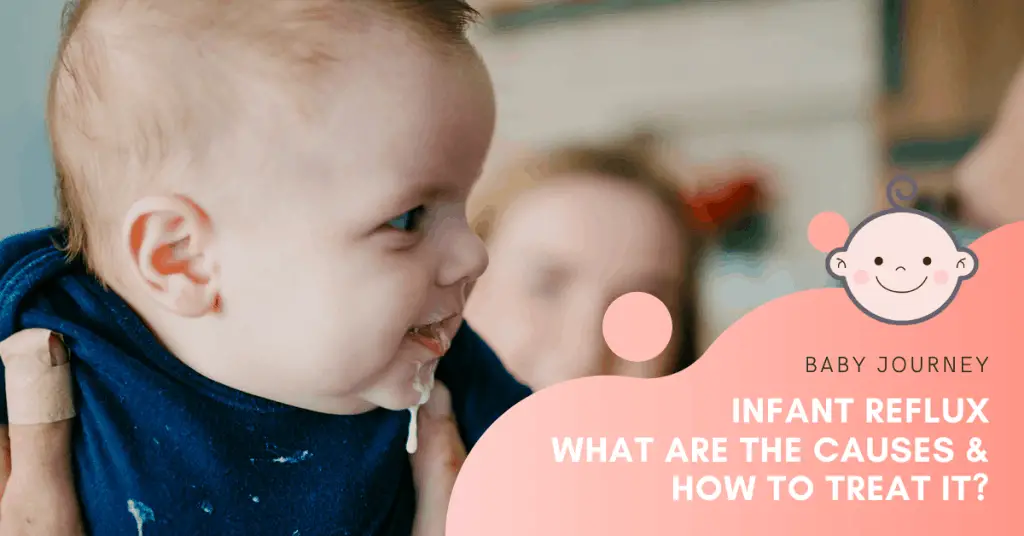Babies are known for their adorable and sometimes puzzling behaviors. One such behavior is head shaking. Parents may wonder why does my baby shake his head and if it is a cause for concern. While it can be alarming to see a baby shaking head, in most cases, it is a normal part of development.
One of the most common reasons a baby shakes their head is to explore their environment. As babies develop, they become more curious about the world around them and use their senses to understand it. Head shaking is one way for babies to explore their visual and auditory surroundings. They may also shake their head when they are excited or happy.
However, head shaking can also be a sign of an underlying medical condition. For example, if a baby is shaking the head too much or in a repetitive manner, it could be a sign of a neurological disorder. It is important for parents to pay attention to their baby head shaking behavior and seek medical attention if they have any concerns. By understanding why babies shake their heads, parents can better determine if it is a normal behavior or if it requires medical attention.
Causes of Head-Shaking in Babies

Head-shaking in babies can be a normal developmental milestone or a sign of an underlying medical condition. Here are some of the common reasons why babies do head shaking:
Normal Developmental Milestone
One of the reasons why a baby shakes head is that it is a part of normal development. Once their neck muscles are developed, babies test their ability to hold up and move their head. Usually, by the end of the first month, a baby starts moving their head from side to side. This normal head shaking is a way for them to explore their surroundings and develop their motor skills.
Self-Soothing Mechanism
Another reason why babies keep shaking the head is that it is a self-soothing mechanism similar to reasons behind babies humping. Babies may shake their heads when they are tired or trying to fall asleep. This is a self soothing behavior for them to calm themselves down and feel more comfortable.
Reflex Response
Head-shaking can also be a reflex response to certain stimuli. For example, babies may shake their heads when they hear loud noises or feel a sudden movement. This is a way for them to protect their delicate head and neck.
Ear Infections
Sometimes, head-shaking can be a sign of an ear infection. An ear infection could cause the baby to shake their head more frequently than normal. They may also have a ringing in their ears (tinnitus) or a discharge coming out from their ear. Pain caused by an inflammation of the eardrums or an itch in their ear canal can also cause them to shake their head to find a more comfortable position.
Neurological Condition
In some cases, head-shaking can be a sign of an underlying neurological condition. For example, babies with autism may shake their heads as a way to self-stimulate. Other conditions, such as cerebral palsy or seizure disorders, can also cause head-shaking.
Overall, head-shaking in babies can be a normal part of development or a sign of an underlying medical condition. If you are worried about your baby’s behavior on head-shaking, it is always best to consult with a pediatrician to rule out any underlying medical conditions.
When to Seek Medical Attention

If you notice your baby shaking their head excessively or in an unusual manner, it is important to monitor their behavior and look for any other accompanying symptoms. If the head shaking is accompanied by other signs such as vomiting, fever, lethargy, or difficulty breathing, it is important to seek medical attention right away.
In some cases, the head shaking may be a sign of an underlying medical condition such as an ear infection or neurological disorder. If a baby is showing signs of discomfort or pain while shaking their head, it is important to take them to the doctor to determine the cause of the behavior.
If a baby has been shaken violently, it is important to seek medical intervention immediately. Forcefully shaking an infant or toddler can cause a serious brain injury, which is known as shaken baby syndrome. It can cause long-term damage or even death. If a baby has been shaken, it is important to call emergency services or take them to the hospital right away.
Parents and caregivers should also be aware of any changes in a baby’s behavior or development. If a baby is not meeting their developmental milestones or is showing signs of regression, it is important to seek medical attention to determine the cause of the behavior.
In summary, if a baby shakes their head excessively or in an unusual manner, or showing any other signs of discomfort or pain, it is important to seek medical attention right away. If a baby has been shaken violently, it is important to call emergency services or take them to the hospital immediately. Parents and caregivers should also be aware of any changes in a baby’s behavior or development and seek medical attention if necessary.
Is Shaking Head A Sign of Autism in Babies?

Parents may wonder if their baby’s head shaking is a sign of autism. While head shaking can be a sign of autism spectrum disorder, it is not necessarily an indicator on its own.
According to Medical News Today, babies may shake their heads for several reasons, including self-soothing or communicating. By the age of one, many little ones shake their heads to express “no” or frustration.
However, shaking the head excessively or in a repetitive manner, especially accompanied by other developmental delays, may be a sign of autism. According to Healthline, some signs and symptoms of autism may develop as infants become toddlers and preschoolers, such as repetitive movements like hand flapping or spinning and intense interest in certain objects or topics.
It is important to note that early intervention is crucial for children with autism. If parents have concerns about their child’s development, they should speak with their pediatrician. The pediatrician can perform a developmental screening and refer the child to a specialist if necessary.
In summary, while head shaking can be a sign of autism, it is not necessarily an indicator on its own. Parents should watch for other signs and symptoms of autism and consult with their pediatrician if they have concerns about their child’s development.
Preventing Head-Shaking in Babies
Babies shake their heads for many different reasons, including developing motor skills, self-soothing, or communicating non-verbally. However, excessive head-shaking can be a sign of an underlying issue, such as an ear infection or neurological disorder. Parents can take steps to prevent head-shaking in their babies by creating a calm environment, establishing a consistent sleep routine, and using soothing techniques.
Create a Calm Environment
Babies can become overwhelmed by loud noises, bright lights, or too much stimulation. To prevent head-shaking caused by stress or overstimulation, parents should create a calm environment for their babies. This can include:
- Dimming the lights or using a nightlight to create a soothing atmosphere
- Playing soft music or white noise to drown out loud noises
- Limiting visitors or activities that can cause overstimulation
- Providing a safe and quiet space for the baby to rest
Set Up a Consistent Sleep Routine
A consistent sleep routine can make babies feel secure and calm, reducing the likelihood of excessive head-shaking. Parents can establish a sleep routine by:
- Setting a regular bedtime and the time for them to wake up
- Creating a calming bedtime routine, such as a bath, storytime, or lullabies
- Encouraging naps at regular times throughout the day
- Making sure the baby’s sleep environment is safe and comfortable
Use Soothing Techniques
Soothing techniques can help calm a fussy or overstimulated baby, reducing the need for head-shaking. Some techniques parents can try include:
- Swaddling the baby to provide a sense of security
- Offering a pacifier or teething toy to suck on
- Massaging the baby’s back or tummy
- Rocking or gently bouncing the baby
- Using a baby carrier or sling to keep the baby close
By creating a calm environment, establishing a consistent sleep routine, and using soothing techniques, parents can help prevent excessive head-shaking in their babies. If head-shaking persists or is accompanied by other symptoms, parents should consult with their pediatrician to rule out any underlying issues.
Conclusion
In conclusion, head shaking is a common behavior among babies and can have various causes. It can be a sign of hunger, stress, self-soothing, or non-verbal communication. However, it can also indicate more serious underlying conditions such as neurological disorders or brain infections.
Parents should observe their baby’s head shaking behavior and try to identify the cause. If the head shaking seems to be persistent or accompanied by other abnormal behaviors, it is recommended to seek medical advice.
It is important to note that head shaking is not always a cause for concern, especially if it occurs during sleep or when the baby is learning to control their neck. Parents should also be aware that head shaking can be a normal part of a baby’s development and may not require any intervention.
Overall, understanding the reasons behind a baby’s head shaking behavior can help parents provide appropriate care and support for their little one. By observing and responding to their baby’s needs, parents can help ensure their baby’s healthy development and well-being.




